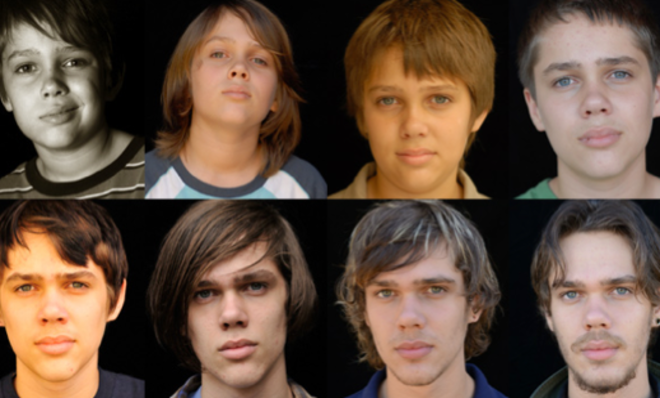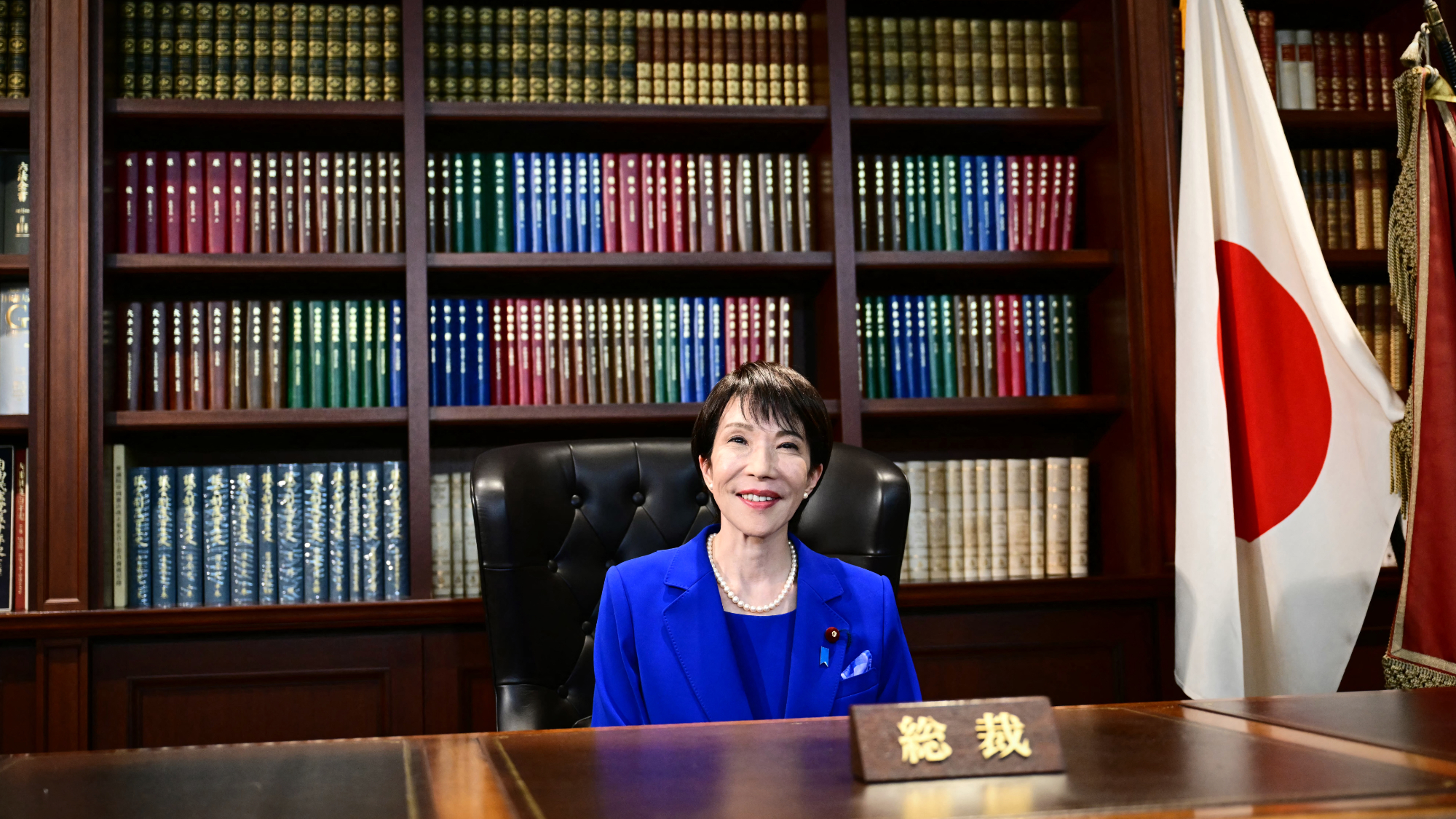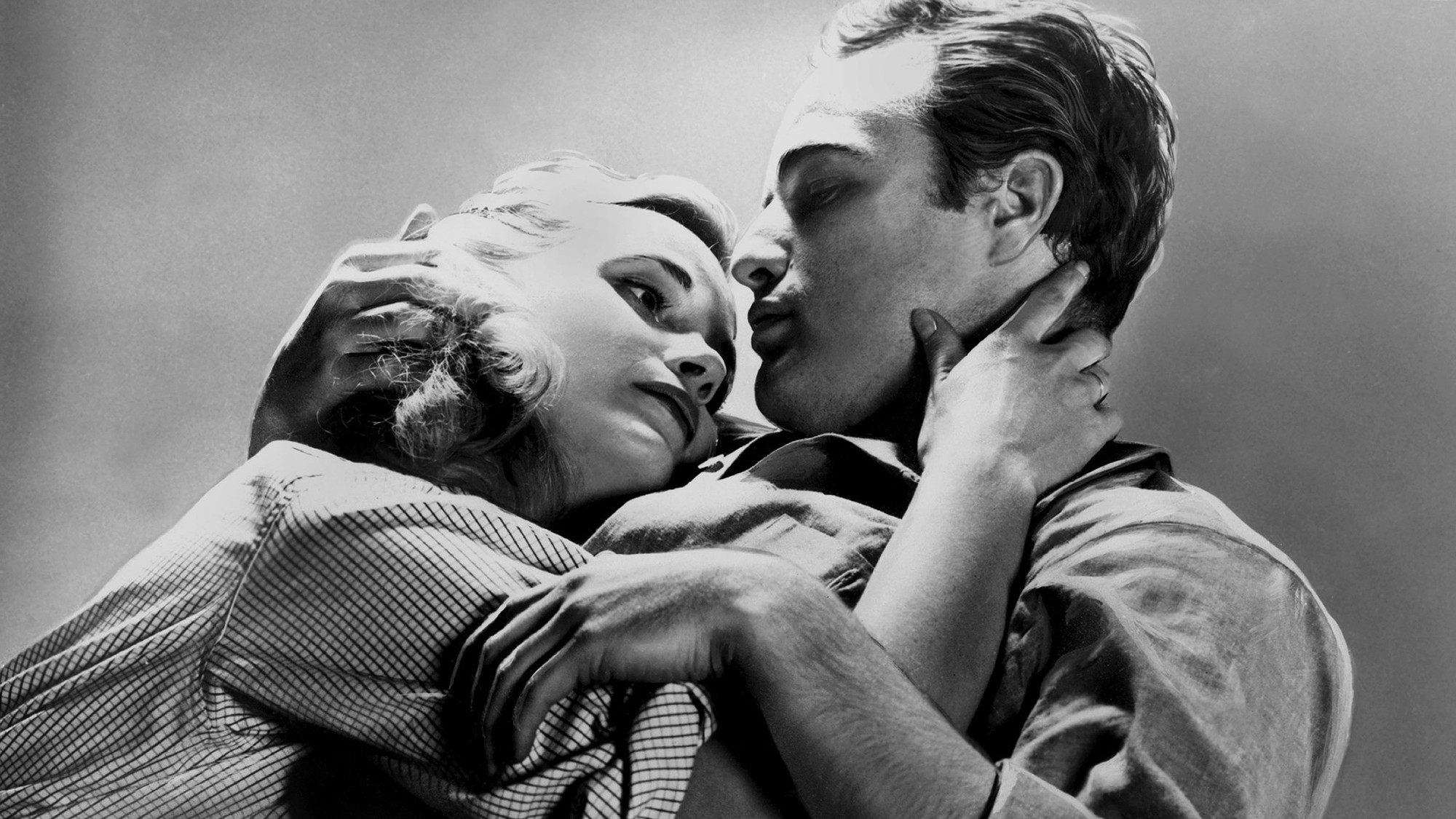Always right now: On Richard Linklater's Boyhood
The director's new movie goes deep on time's relationship with the self


On my dresser is a black and white photograph of a boy who is about five years old. He is sitting for a formal portrait, wearing a white polo shirt. He is looking upwards, slightly away from the camera, probably at the photographer himself. His cheeks are chubby, and his hair is clipped short in a jagged line across his forehead. His eyes are very soft, so soft that they seem to be trembling.
The boy, of course, is me. Or at least that's what I have been told, for the child peering out from my dresser bears little resemblance to the man who shaves in the mirror each morning. I have no idea what the boy was thinking as he sat there in his nice clothes, fixated on the stranger who was about to take his picture. Whatever his thoughts were, they were colored by a consciousness that was vastly different from the way I see the world now, some 28 years later. He may as well have been another person altogether.
So which is the real me? The boy or the man? This question, this doubt about the unity of the self over time, has bothered artists and philosophers for millennia. "If I am changing, I no longer remain the person I was," Rilke wrote at the turn of the 20th century. One ancient school of thought went so far as to suggest that a person should not be punished for crimes committed in the distant past, since someone else was actually responsible.
The Week
Escape your echo chamber. Get the facts behind the news, plus analysis from multiple perspectives.

Sign up for The Week's Free Newsletters
From our morning news briefing to a weekly Good News Newsletter, get the best of The Week delivered directly to your inbox.
From our morning news briefing to a weekly Good News Newsletter, get the best of The Week delivered directly to your inbox.
In his new movie Boyhood, director Richard Linklater addresses this question in a groundbreaking way. He shot Boyhood intermittently over 12 years, which allowed him to capture in a single film the gradual metamorphosis of a boy becoming a young man. The result is a quiet bildungsroman that is capable of producing the kind of awe usually associated with Avatar-like leaps in technology. He has cheated time with the most elegant sleight of hand, using its destructive properties to construct a life whose different phases are seamlessly stitched together.
Among the arts, film is uniquely suited to experimenting with time, and filmmakers have been playing with it since the medium was born. That makes it all the more extraordinary that Linklater has come up with a conceit that, as far as I know, is totally original. And while the organic evolution of the character Mason (Ellar Coltrane) is the movie's principal attraction, it is an innovation that is slipped unobtrusively into an indie domestic drama, unlike other avant-garde films that eschew storytelling conventions like character and plot to make big artistic statements about time, whether it's Andy Warhol's Empire, Alexander Sokurov's Russian Ark, or Christian Marclay's The Clock.
Still, there is not much plot to speak of in Boyhood. Indeed, the movie falters into dullness only when it flirts with conventional plotlines, such as an escape from an alcoholic stepfather. It is strongest when it is content to convey ordinary moments of being, all of which are suffused with an intensity of feeling that is as warm as a Texan sunset: a hike in the woods with Mason's biological father (Ethan Hawke, in the role of his career), a caddish man-child who is a font of both hard-scrabbled wisdom and limitless tips for how to pick up chicks; a fight with his sister (Lorelei Linklater, the director's daughter) in the backseat of a car on a long drive; a high school graduation party hosted by his mother (Patricia Arquette, in the role of her career), a loving, lovable matriarch who somehow makes one bad life decision after another.
Above all, what makes Boyhood riveting is the succession of Masons we see over the course of the movie, each one giving way to the next in a kind of reverse birth, as if the plumpness of childhood contains within it the seed of something gaunter and harder.
A free daily email with the biggest news stories of the day – and the best features from TheWeek.com
"I don't have a body, I am a body," Christopher Hitchens wrote with the force of epiphany as terminal cancer ate him from the inside, realizing that the body is not merely a house for the self (or, more quaintly, the soul) but is the self. Boyhood is an emphatic testament to this truth, showing that while our limbs may lengthen, they grow out of, and are woven inextricably with, their original iterations.
But does consciousness work like the body? To put it another way, does Mason view his own growth in this way, with a fundamental boy at the center like a nesting doll? The film's opening shot is of the sky; the next is of a 6-year-old Mason lying on the grass and staring up at the clouds. Linklater seems to suggest that the movie is being told through Mason's eyes, but he quickly abandons that premise with point-of-view perspectives from both Mason's sister and mother. As Mason grows older and the houses of his life become cluttered with photographs of him and his sister at a younger age, the movie increasingly takes on a parental quality, which makes perfect sense: who else but your mother or father could look at you and see all of you at once, from the day you were born to the day you leave for college?
Still, Linklater tries to have it both ways, suggesting that what the audience is observing is mirrored within his main character. Mason, high on psychedelics, tries to explain it in the movie's closing scene: "It’s constant, the moments, it's just — it's like it's always right now, you know?" This could be read as a Zen-like repudiation of Linklater's entire project — the past is irretrievable, and should be let go — but if his previous work is any indication, it is more likely an affirmation of an eternal present, the idea being that all the eras of our lives, all the people we were, are folded like origami within ourselves.
This is an expansion of what amounts to an article of faith for Linklater. In his acclaimed Before trilogy, which can be seen as a kind of bulky prototype for Boyhood, the characters are convinced that no matter how much they change, they possess an immutable core that defines them across the 18 years in which the movies are set. "People don't want to admit it, but it's like we have these innate set points, and nothing much that happens to us changes our disposition," Hawke's character Jesse says in Before Sunset.
It's a nice thought, and Linklater has conveyed it beautifully on the screen. But it gives short shrift to the sea changes that can alter a person entirely from one epoch to the next, whether it is the birth of a child or the awakening of a vocation, not to mention the extreme transformations in self that can occur through accident or circumstance. As Jean Rhys wrote in Voyage in the Dark, the story of a young woman who, like Rhys herself, emigrates from the West Indies to England:
It was as if a curtain had fallen, hiding everything I had ever known. It was almost like being born again. The colors were different, the smells different, the feeling things gave you right down inside yourself was different. Not just the difference between heat, cold; light, darkness; purple, gray. But a difference in the way I was frightened and the way I was happy.
Most importantly, Linklater only hints at the true connective tissue between the 6-year-old version of Mason and the 18-year-old one, as well as the young, vibrant Jesse who graces Before Sunrise and the worn, grizzled father who appears in Before Midnight. Mason grows up to be a photographer, while Jesse is a writer whose novels are based on his experiences with his soulmate Celine. It's no coincidence that they are artists, since Linklater knows as well as anyone that time ultimately can't be cheated, and that what we call our selves will disappear and be forgotten. As he has shown us so masterfully in Boyhood, if the self is to exist in any meaningful sense, it must be created.
Ryu Spaeth is deputy editor at TheWeek.com. Follow him on Twitter.
-
 AI workslop is muddying the American workplace
AI workslop is muddying the American workplaceThe explainer Using AI may create more work for others
-
 Japan poised to get first woman prime minister
Japan poised to get first woman prime ministerSpeed Read The ruling Liberal Democratic Party elected former Economic Security Minister Sanae Takaichi
-
 The 5 best mob movies of all time
The 5 best mob movies of all timeThe Week Recommends If you don’t like a good gangster flick, just fuhgeddaboudit